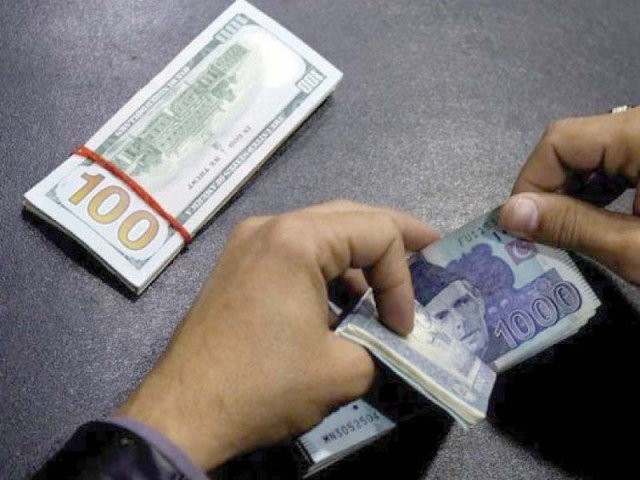
What impact do devaluation of the currency and rising inflation rates have on the country’s economy?

The State Bank of Pakistan (SBP) on January 31, 2019 increased the key discount rate by 25 basis points to 10.25 per cent, which was a six-year highest. This rate is effective from Feb 1.
Before this adjustment, the central bank had surprisingly increased the discount rate a month earlier by 150 basis points to 10 percent from 8.5 percent to ensure economic stability after massive devaluation of the Pakistan currency.
Bankers say the rise in the key policy rate was essential in the wake of increasing inflation, which was 7.2 percent in January 2019.
Economists point out that a gap of more than 2 percent between inflation rate and discount rate is indicative of a tight monetary policy, whereas if inflation is 10 percent and discount rate is also 10 percent then it shows a loose monetary policy.
While announcing an increase in the discount rate, the SBP stated it was also necessary to curb the persisting inflationary pressures, worsening fiscal situation and continuing the current account pressures. The SBP Governor, Tariq Bajwa suggested the government to vigorously pursue to further reduce the fiscal and current account deficits to put the economy on a long term positive trajectory.
The upward revision in the policy rate by the central bank, which would also affect the commercial bank borrowing adversely, was in continuation of the fiscal measures towards tightening the monetary policy.
According to SBP data, the current account deficit of Pakistan has slightly shrunk to US $7.983 billion in the first six months of the current fiscal year 2018-19, as compared to $8.353 billion in the corresponding period of the last fiscal year. The deficit in the first six months remained at 5.4 percent of the Gross Domestic Product (GDP).
The fiscal measures have started bearing fruit as the balance of trade situation has improved. According to government data, the trade deficit has shrunk by 5 percent from US $17.7 billion in July-December 2017 to US $16.8 billion in the corresponding period in 2018.
The impact of devaluation on the country’s exports is not felt immediately. However, this impact can be measured in terms of volume but not in terms of the value, which would be reflected later.
"Imported goods have become costly due to devaluation," says a senior banker, Dr. Shahid Hasan Siddiqui, Chairman of Research Institute of Islamic Banking and Finance. He says Pakistan is an import-based economy in which import of fuel is the main item, which sucks the big chunk of foreign exchange. Exports from Pakistan are not increasing with the same proportion.
Recently, the international rating agency Standard and Poor’s (S&P) has lowered Pakistan’s credit rating from B to B negative due to poor economy.
The ruling PTI has been blaming former Pakistan Muslim League-N government for putting a cap on the exchange rate, which affected the country’s exports. The imports prices also remained at the same level, but due to local inflation, the prices of oil remained higher.
The other major measures announced by the government of Prime Minister Imran Khan to improve the economy included massive devaluation of Pakistani currency on November 30 and announcement of a mini-budget on January 23, 2019, adjusting tax rates. Currency devaluation is a solution for reducing the current account deficit as overvalued rupee makes exports expensive and imports cheaper.
Dr Shahid Siddiqui questions the 100-day performance of the present government. He says the PTI had promised to bring equitable taxation policy, but all the economic measures, including mini budgets, have go against the claims. He says all income should be taxable. Similarly, he says whitening of the black money should be stopped, but the government in the mini-budget has provided incentives for whitening of the black money. "All sections of the society would benefit from amendment in Section 123 of Income Tax Ordinance," he adds.
The present government has also failed to control prices. "The federal government increased the Sui gas rates by over 143 percent in September, 2018, which has affected every section of the society as well as impacted on prices of other commodities. Similarly, price of electricity has also increased," he adds.
All these tough economic measures are said to be preparations for getting a bailout package from the International Monetary Fund (IMF), which has still not been materialised. Although the size of the IMF bailout package is still unknown, further tough economic measures are expected to be announced in the next budget to meet IMF conditionalities.
The government has formally applied for an IMF loan. A mission of the lender had also visited Islamabad to finalise the deal. IMF may approve the loan by July 2019, after the start of new financial year. Federal Finance Minister, Asad Umer, has hinted that negotiations with IMF for a bailout package are at an advance stage and the loan would be approved very soon.
Also read: Slow and (un)steady
Dr. Kaiser Bengali, senior economist, who remained Advisor to Chief Ministers Sindh and Balochistan, says "whether you buy one billion dollars or 10 billion dollars the conditionalities of IMF remain the same."
Pakistan has so far received around US $2 billion as friendly financial support from brotherly Muslim countries -- Saudi Arabia and the United Arab Emirates. In October, Saudi Arabia had announced to give US $6 billion package to Pakistan, which included half as balance of payment support and the remaining as deferred payment on oil purchases. A similar package worth US $3 million was also announced by the UAE.
"Pakistan has so far postponed the economic crisis with the help of the Gulf countries," remarks Dr. Siddiqui.